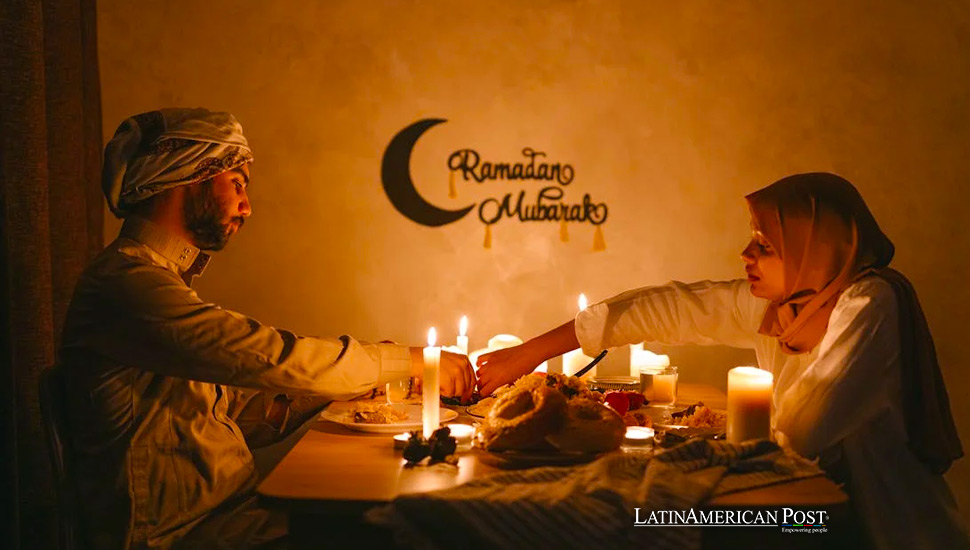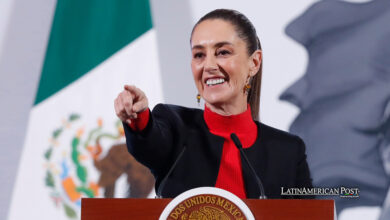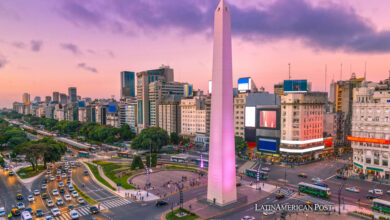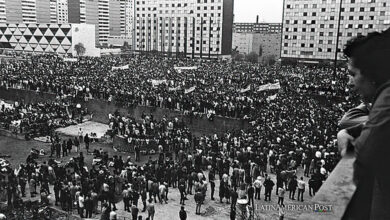Ramadan in Latin America Entails a Sacred Journey Through a Catholic Heartland

As Ramadan dawns over a continent rich in Catholic tradition, Latin America’s Muslims begin a sacred month of fasting, prayer, and community. Their practices offer a poignant glimpse into the diversity and resilience of faith in a predominantly Christian environment.
A Tapestry of Faith in Latin America
In the ethereal glow of the new moon, a continent predominantly known for its Catholic heritage finds itself home to a vibrant tapestry of cultures and beliefs. Among these, a smaller yet fervently devoted Muslim community prepares to welcome Ramadan, a month of profound spiritual significance transcending geographical and cultural boundaries. This period of fasting and reflection offers an intimate look into the lives of Latin America’s Muslims, highlighting a rich narrative of faith that complements the region’s cultural mosaic.
Specifically, the start of the sacred month of Ramadan, observed by Muslims, will be either today or Tuesday, March 12, contingent on the moon’s visibility. Fasting from sunrise until sunset during Ramadan can last between 12 to 17 hours, varying by geographic location. Muslims believe that over 1,400 years ago, during the Ramadan month, the initial verses of the Quran were revealed to the Prophet Muhammad.
During the fasting period, Muslims refrain from consuming food and drinks, smoking, and engaging in sexual activities while the sun is up, aiming to deepen their “taqwa,” or awareness of God.
Historical Roots: Islam in Colonial Latin America
The historical roots of Islam in Latin America stretch back to the colonial era when enslaved West Africans, their faith etched into the core of their being, were forcibly brought to its shores. Centuries later, the 20th century ushered in a significant wave of Middle Eastern immigrants, who infused the region with a fresh cultural and religious dynamism. Countries such as Brazil, Argentina, Suriname, and Guyana became focal points for this growing Muslim community, each developing its unique expression of Islamic faith amidst a Catholic majority.
Ramadan, one of Islam’s pillars, ushers in a time of fasting, prayer, and introspection for Muslims worldwide. Adherents abstain from food and drink from sunrise to sunset, dedicating themselves to spiritual growth and renewal. Beyond the physical discipline, Ramadan is a time for believers to engage in acts of charity, deepen their connection with God, and reflect on the virtues of patience, humility, and compassion.
In Latin America, the observance of Ramadan carries distinctive local flavors, merging traditional Islamic practices with the region’s cultural idiosyncrasies. With its notable Muslim population, Brazil sees its mosques transformed into vibrant centers of worship and community gathering. The nights come alive with prayers and the sharing of iftar, the meal that breaks the fast, where Brazilian culinary traditions often mingle with Islamic dietary laws, creating a unique cultural fusion.
Further south, Argentina’s Muslim community congregates in mosques and homes, weaving the essence of Ramadan into the fabric of daily life. Ramadan bazaars, offering everything from halal food to Islamic literature, underscores Muslims’ growing visibility and integration in Argentine society. These spaces also serve as platforms for interfaith dialogue, fostering a deeper understanding and respect among the country’s diverse religious groups.
In Guyana, the influence of South Asian descent among the Muslim population brings an additional layer of cultural richness to Ramadan observances. The legacy of ancestors is palpable in the Ramadan traditions that flourish here, where African and South Asian influences converge. The iftar table boasts a cornucopia of flavors, symbolic of the country’s multicultural heritage and the universal spirit of Ramadan.
Despite the beauty and camaraderie of Ramadan, Muslims in Latin America face challenges inherent to minority communities. Access to halal food and prayer facilities can be sporadic, reflecting broader issues of representation and inclusion. Yet, precisely, these trials underscore the resilience and adaptability of the Muslim community. Ramadan becomes a period of spiritual observance and an affirmation of identity and belonging.
Building Bridges: Ramadan’s Impact on Interfaith Relations
The holy month also opens doors to meaningful engagement with the broader community. Inviting non-Muslim neighbors to partake in iftar meals is a powerful gesture of friendship and solidarity, breaking down barriers and nurturing a shared sense of belonging. These moments of connection are pivotal in challenging stereotypes, fostering mutual respect, and celebrating the common humanity that binds all people, regardless of faith.
As Ramadan unfolds across Latin America, it paints a compelling portrait of a region where diverse faiths coexist and enrich the social fabric. From Brazil and Argentina’s bustling streets to Guyana’s unique cultural landscape, the Muslim community’s observance of Ramadan is a testament to Latin America’s pluralistic identity. Their journey through this sacred month reflects a commitment to spiritual growth and a contribution to the vibrant diversity that defines the continent.
Also read: Water Scarcity in Latin America’s Megacities is a Growing Crisis
In embracing the solemnity and joy of Ramadan, Latin America’s Muslims weave a thread of faith that adds depth and color to the region’s cultural tapestry. Their dedication to fostering community ties, engaging in acts of charity, and promoting understanding transcends religious boundaries, offering a model of coexistence and resilience. As they navigate the challenges and opportunities of faith in a predominantly Catholic environment, their experiences during Ramadan stand as a beacon of hope and a reminder of the enduring strength of the human spirit in the face of diversity.





